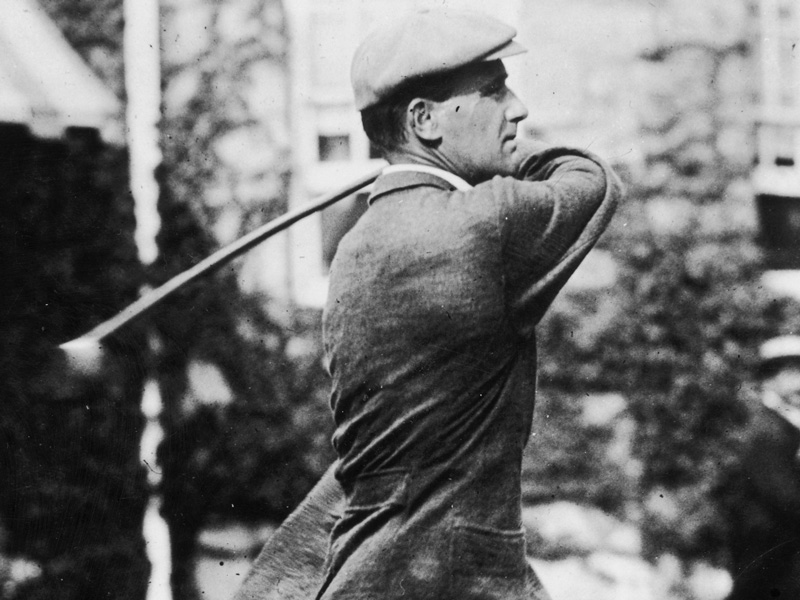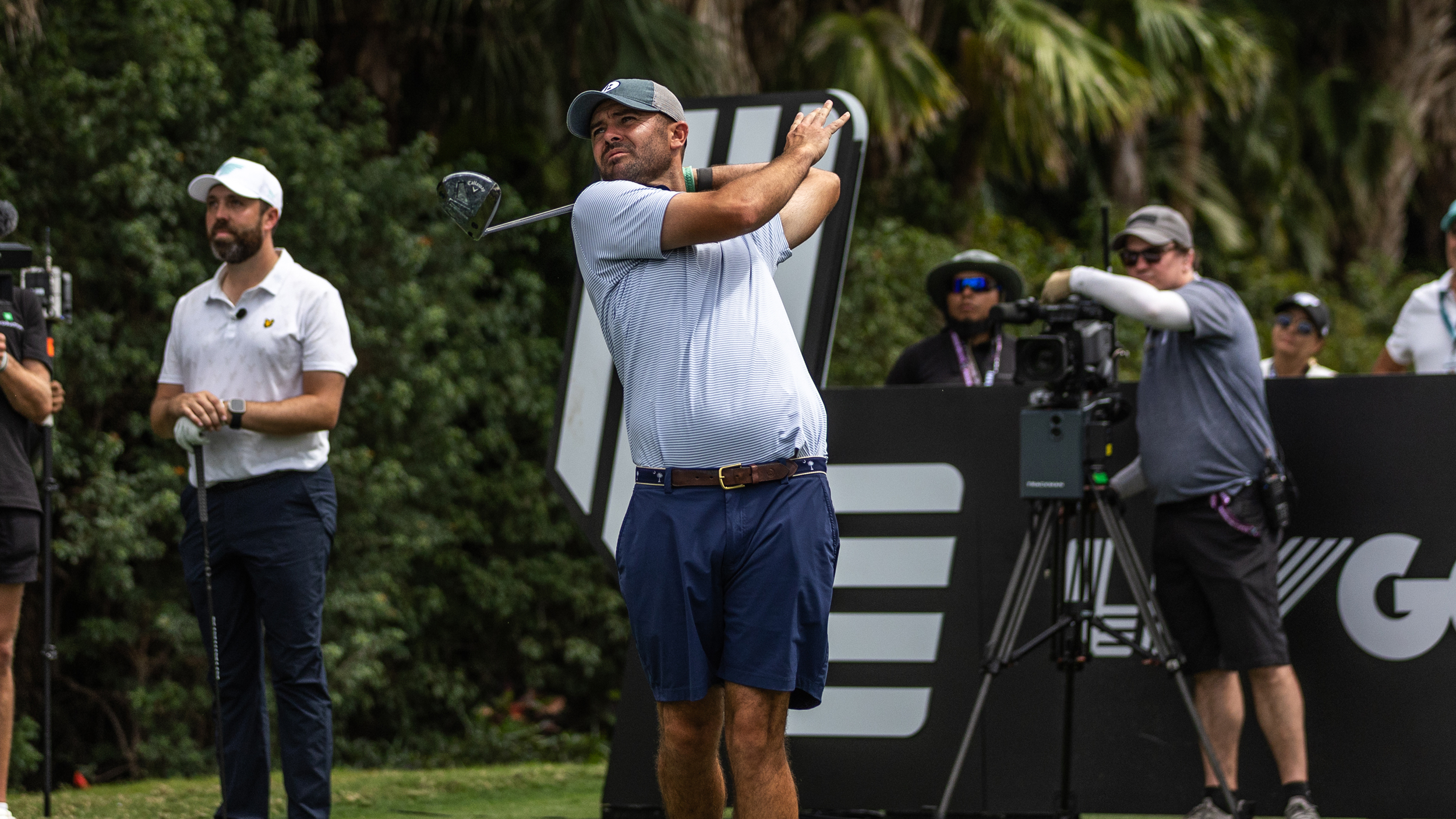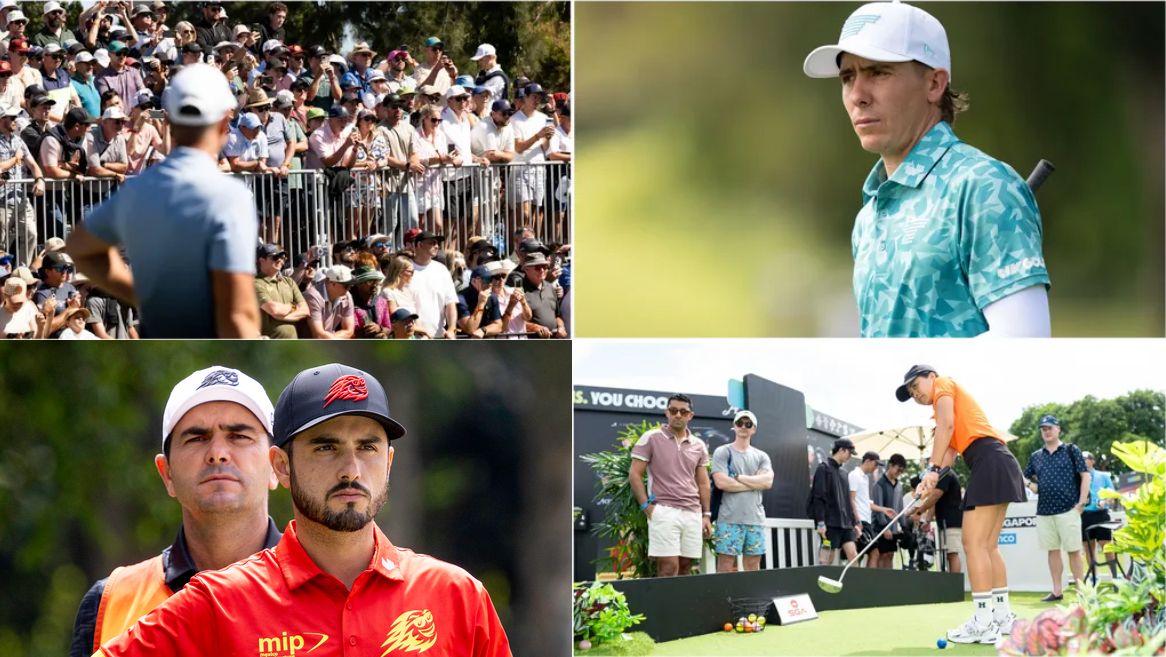A history of Olympic golf
Fergus Bisset tells the story of golf's strange Olympic history


With golf returning to the schedule for Rio in 2016, Fergus Bisset takes a look at the history of golf in the Olympic Games.
In 2016 golf will be included at the Olympic Games in Rio de Janeiro. It’s likely to be quite a spectacle, as many of the world’s best players (men and women) will battle it out for gold, silver and bronze over 72-holes of strokeplay.
2016 will not, however, be the first time golf has featured in the Olympics. The sport has a, somewhat, peculiar association with the Games that dates back over 100 years. Here we take a brief look at the history of Olympic golf.
1900 – Fiasco in Paris
The Paris Games were held as part of the 1900 Exposition Universelle. There was controversy in the build-up when the IOC, founded in 1894 by Pierre, Baron de Coubertin, was forced to cede control of the games to a newly formed committee following pressure from the Union of the French Societies for Athletic sports. This caused chaos as a completely new schedule of events was drawn up and many athletes who had planned to compete according to the original schedule withdrew.
A golf tournament did take place however, and it was won by Charles Sands of the USA with scores of 82 and 85. Incredibly, there was also a separate, handicap event, won by another American Albert Lambert. The 10-handicapper only entered because he happened to be in the city on a business trip.
This was the first Olympic Games that included women, and there was a women’s golf tournament. But, owing to the confusion caused by the re-structuring, few (if any) of those competing in the event realised its significance. Margaret Abbott from the USA was visiting Paris with her mother and both entered a nine-hole golf event that they believed to be the Ladies’ Championship of Paris. Margaret won with a score of 47 and her mother came seventh. It wasn’t until after Margaret’s death that it came to light that she was, in fact, the USA’s first female Olympic champion.
Get the Golf Monthly Newsletter
Subscribe to the Golf Monthly newsletter to stay up to date with all the latest tour news, equipment news, reviews, head-to-heads and buyer’s guides from our team of experienced experts.
1904 – An upset in St Louis
A new golf course was built for the 1904 Olympics in St Louis, Missouri. The Golf Club founded at Glen Echo, was the first west of the Mississippi. The sport’s popularity in North America was rising dramatically at the time and the tournament attracted some 75 amateur entrants from the USA and Canada.
One of those who put their names down was 20-year-old H. Chandler Egan of the USA. He was a Harvard student and the reigning U.S. Amateur champion. He was heavy favourite for the tournament, so much so that the national press had all but crowned him champion before the knockout stages had commenced.
Egan did indeed make it with some ease through the qualifying, and his route to the final was relatively smooth. But in that final he came up against a steely 46-year-old Canadian called George Lyon. In horrendous conditions, Lyon (a former cricketer) out-battled his young rival during the 36-hole final. Much to the chagrin of the crowds, Lyon fought through the wind and rain to win by 3&2.
1908 – A golf tournament that never was
The London Olympics of 1908 should have witnessed an excellent golf tournament featuring some of the heavyweights of British amateur golf – the likes of Harold Hilton (first editor of Golf Monthly Magazine,) Robert Maxwell and the legendary John Ball. Defending champion George Lyon crossed the Atlantic keen to take on these great players.
A six-round tournament was scheduled over the links at Royal St. George’s, Princes and Royal Cinque Ports. But, when the Royal and Ancient Golf Club of St Andrews became embroiled in a dispute with the Olympic organising committee over player eligibility, all the home players withdrew from the event.
That left a disappointed George Lyon as the only competitor. He was offered the gold medal, but he turned it down.
Golf disappears, then Hitler’s snub
Golf wasn’t much played in Scandinavia in the early part of the 20th century, so the sport wasn’t included in the programme for the Stockholm Olympics of 1912. There was a suggestion of a tournament in the 1920 games in Antwerp, but so few entries were received, it didn’t go ahead.
Prior to the 1936 Berlin Olympics, a golf tournament was held at Baden-Baden – The Great Golf Prize of the Nations. Adolf Hitler donated a trophy and was eager to present it to a victorious German team.
Going into the final round of the aggregate pairs tournament, it looked as though The Fuhrer would get his wish. Leonard von Beckerath and C.A. Hellmers led the English pairing of Tommy Thirsk and Arnold Bentley by three shots. Hitler’s representative at the tournament – Foreign Minister von Ribbentrop sent a message to his leader that German victory was imminent. Hitler set off for Baden-Baden to present the trophy.
But Tommy Thirsk produced a superb, course-record, final round of 65 as the Germans stumbled. The English pairing was victorious and the French overtook the German team for second place. Von Ribbentrop raced off to intercept Hitler and break the bad news. On being informed, Hitler promptly turned around and headed back to Berlin, leaving Dr Karl Henkell to present the trophy to Thirsk and Bentley.
The plate that was presented that day now hangs proudly in the clubhouse of The Hesketh Golf Club, Southport. Arnold Bentley was a prominent member there and the club put up a concerted effort to buy it a few years ago.
And that was golf’s last involvement in, or around, the Olympic Games until the successful campaign for its reinstatement, 80 years later. Bring on Rio!

Fergus is Golf Monthly's resident expert on the history of the game and has written extensively on that subject. He has also worked with Golf Monthly to produce a podcast series. Called 18 Majors: The Golf History Show it offers new and in-depth perspectives on some of the most important moments in golf's long history. You can find all the details about it here.
He is a golf obsessive and 1-handicapper. Growing up in the North East of Scotland, golf runs through his veins and his passion for the sport was bolstered during his time at St Andrews university studying history. He went on to earn a post graduate diploma from the London School of Journalism. Fergus has worked for Golf Monthly since 2004 and has written two books on the game; "Great Golf Debates" together with Jezz Ellwood of Golf Monthly and the history section of "The Ultimate Golf Book" together with Neil Tappin , also of Golf Monthly.
Fergus once shanked a ball from just over Granny Clark's Wynd on the 18th of the Old Course that struck the St Andrews Golf Club and rebounded into the Valley of Sin, from where he saved par. Who says there's no golfing god?
-
 Reports: Wesley Bryan Suspended By PGA Tour After Playing In LIV Golf Duels
Reports: Wesley Bryan Suspended By PGA Tour After Playing In LIV Golf DuelsThe 2017 RBC Heritage winner is said to have been suspended by the PGA Tour after teeing it up in the recent LIV Golf creator event in Miami
By Elliott Heath
-
 LIV Golf Mexico City: Book Your Tickets To See The Stars Of The Game
LIV Golf Mexico City: Book Your Tickets To See The Stars Of The GameMexico City welcomes LIV Golf's all-star roster later this month, where you can see the world's best players and enjoy the show and the family friendly atmosphere
By Golf Monthly